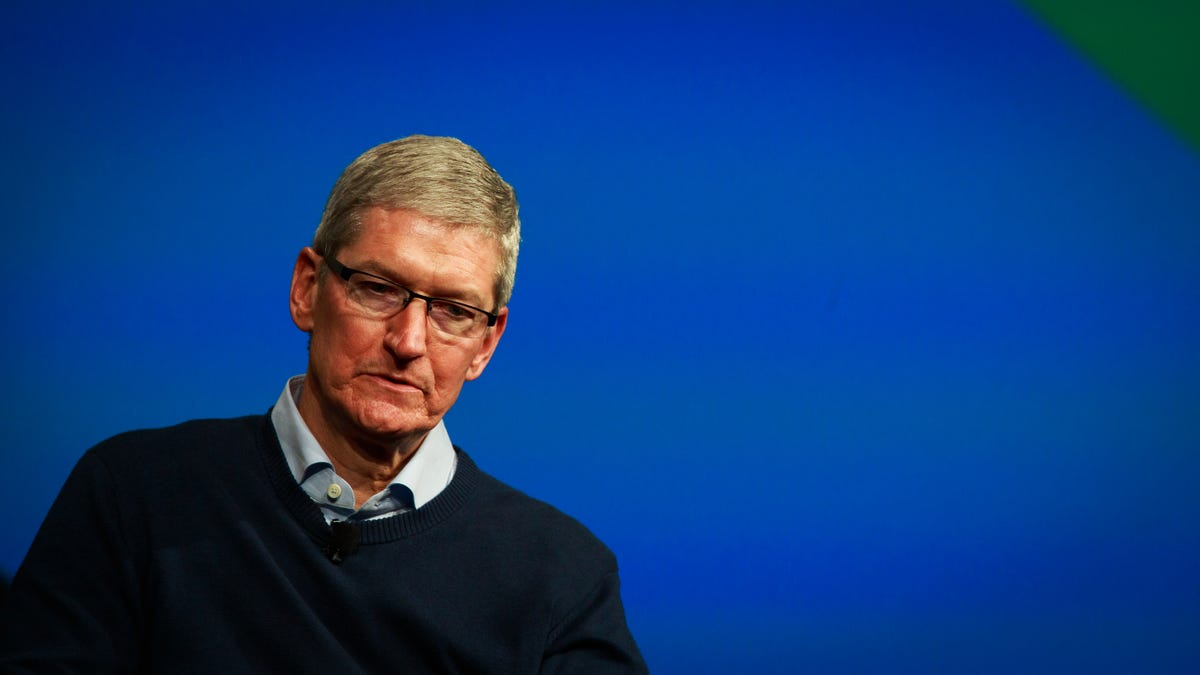Tim Cook says he isn't too worried about China tariffs on iPhones
Apple's CEO also says he's kept a close relationship with the White House.

Apple CEO Tim Cook says the company's iPhones have managed to avoid being affected by China's tariffs.
Apple CEO Tim Cook says that so far the company's products have managed to escape fallout from President Donald Trump's escalating trade war with China, and he's optimistic it will stay that way.
Beijing said in May it would impose a 25% tariff on US goods in retaliation for Trump's plan to increase tariffs on goods imported from China. Analysts forecast the cost of iPhones could increase as much as 14% as a result, but that hasn't happened yet, Cook said in a recent interview.
"The Chinese have not targeted Apple at all, and I don't anticipate that happening, to be honest," Cook said in an interview with CBS News, conceding that a tariff on the iPhone would hurt sales of the smartphone. (Disclosure: CBS News is owned by CBS, the parent company of CNET.)
"I'm hoping that doesn't happen," he said in the interview. "The truth is, the iPhone is made everywhere. It's made everywhere. And so, a tariff on the iPhone would hurt all of those countries, but the one that would be hurt the most is this one."
The Chinese tariffs were announced in retaliation for Trump promising to increase tariffs from 10% to 25% on roughly $200 billion worth of imports from China, a move that many in the technology and telecom sectors have warned will hurt American consumers and businesses.The US tariffs on China went into effect in May despite the administration's continued trade talks with Chinese officials.
Cook went on to say he's "proud" to engage regularly with the White House, noting that keeping the lines of communications open helps solve problems.
"I don't believe in the 'I disagree with you, and so I don't want to have anything to do with you,'" he said. "The way you stop the polarization is to talk. This is sort of like step one. And I don't want to be part of the problem -- I want to be part of the solution."
Cook characterized his discussions with Trump as fairly straightforward, with a lot of back and forth.
"He listens to the comments, which I appreciate," Cook said. "Sometimes he doesn't agree, but my philosophy on things is that, you always engage, even when you know that you're gonna wind up on very opposite sides."
The interview also touched on the debate over screen time and concerns people are absorbed in their phones rather than in personal interactions.
Cook said he receives a weekly report of his iPhone usage, calling the results "pretty profound." The results prompted him to change his habits so that he was less tempted to pick up his device.
"We made the phone not so that you'll use it all the time. We made the phone to make your life better," Cook said. "But for me, my simple rule is if I'm looking at the device more than I'm looking into someone's eyes, I'm doing the wrong thing."
Cook's interview comes as Apple hosts designers, engineers and developers this week at its annual Worldwide Developers Conference in San Jose, California. During Monday's keynote presentation, Apple's CEO and other top brass introduced new features for iOS 13, a new Mac Pro, a new operating system for the iPad and more.
Cook also spoke with O'Donnell about the company's privacy moves and about recent calls to break up Silicon Valley tech giants. When asked whether Apple is too big, Cook said no. Cook told O'Donnell he thinks "the scrutiny is fair," but he said he strongly disagrees with Sen. Elizabeth Warren's call for Apple and other big tech companies to be broken up.
CNET's Andrew Morse contributed to this report.

